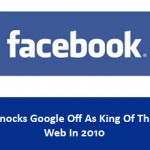 San Francisco — Watch out Google! A band of smaller Internet rivals are forging alliance in hopes of jump-starting online local ad sales in the face of global search engine leader Google Inc.’s growing clout in the market, the Wall Street Journal reports.
San Francisco — Watch out Google! A band of smaller Internet rivals are forging alliance in hopes of jump-starting online local ad sales in the face of global search engine leader Google Inc.’s growing clout in the market, the Wall Street Journal reports.
Google’s relentless effort in expanding their empire these days hardly cause more than a few ripples in the world of online commerce. Recently, their push to devour ITA is still the subject of major controversy, and the fact that Hotpot now takes an active role in providing location data has a variety of companies fuming. One such company is Yext, and they have launched an anti-Google alliance.
Searching for new revenue streams is the name of the game.
Engaging technology formulated by New York-based startup Yext Inc., some of the Web’s top locally focused sites, such as such as AOL Inc.’s MapQuest, Yelp Inc., Yahoo and Citysearch are testing out a new way to attract ad dollars from local businesses ranging from veterinary clinics to gyms to restaurants, in what is being characterized as an “anti-Google alliance,” according to media reports.
The companies are offering businesses a $99-a-month service that empowers businesses to display a marketing message, such as a special offer, along with the contact information that appears about them in local search results and map listings.
The message tag would appear with the company’s listing across more than a dozen local websites. Launch partners for this “Tag Alliance” will include MapQuest, Citysearch, Yellowbook, Local.com, SuperPages, White Pages, MerchantCircle, IAC/InterActive Corp.’s CityGrid, Yelp Inc.’s review website and Topix, with more to come.
The allied websites are looking to initiate a program that targets local ads from businesses, similar to Google Tags, a free business listing with Google Places that enables users to find local businesses more easily. The move stalls Mountain View-based Google’s recently announced $25-per-month service that allows companies to add photos and other features to search results.
The Yext dashboard for this tags service will look something like this:

Yext has accumulated an “audience” in the 30,000 small businesses that have signed up for its free reputation monitoring tool. Besides, the novelty of Yext’s program is that tags to business listings will appear across several local websites, as opposed to just one in Google’s case, according to the Wall Street Journal.
Google has bolstered its push into the local market by hiring several hundred sales representatives to pitch its ads to local businesses. Hence, its smaller rivals say they have to team up if they want to keep Google from running away with the local-ad market, which could be poised to take off.
The method of reprisal is not nearly so destructive as you might think, however. This move is lifted right from the Google playbook, and allows users to do the same thing across these “alliance” sites as they could on Google’s Hotpot and Maps.
Google recently rolled out its tag program and ventured with little success to buy Groupon, one of the leading local ad sites. The leading search engine continues to strengthen that portion of its sales, and has hired a slew of sales representatives charged with doing just that. Other smaller sites that competes with Google are looking to grab a piece of the market before Google, in typical Google-fashion, takes off in the market.
After-all, companies may have a right to be attentive, of course. However, how successful this will really be in deterring the growth of Hotpot is very much in question.
According to the Journal, citing research from Borrell Associates, local businesses are expected to spend about $13.6 billion on online ads this year. The number could be as high as $16 billion next year. The local online-ad market grew 2.3% from 2009 to 2010.


